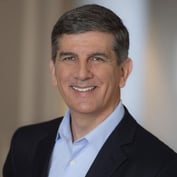In just 10 years, three out of four workers will be members of the millennial generation born between 1980 and 1996. You may have noticed that millennials are different than you and me.
They check their smartphones during a lull in conversation. They have resurrected curious vintage hairstyles. Many are eagerly awaiting receipt of their first beard of excellence award (or at least an award for participation).
In fact, if you haven’t checked recently, you may find that one is living in your basement following a failed search to find fulfilling employment after racking up a six-figure student loan debt.
The first half of the 21st century will be dominated by the millennial generation just as the latter half of the 20th century was influenced by the baby boomers.
In the financial services industry, millennials are now primarily interesting as employees. But in the future, they will begin making their mark as clients. The Pension Protection Act of 2006 began a revolution in 401(k) worker participation by allowing employers to automatically place new employees into retirement accounts (from which they could opt out, but almost never do).
A recent Vanguard study finds that participation rates more than doubled from 42% to 91% with automatic enrollment. The biggest increase was, as you might imagine, among the youngest employees who saw participation rates rise from 26% to 90%. Millennials are going to save more than other generations despite their supposed lack of initiative or materialism.
One of the problems with creating generational cohorts is that we may be tempted to place too much importance on stereotypes. It’s safer to focus on the facts. How are millennials really different?
A recent Pew Research study finds that millennials are more diverse (57% non-Hispanic white vs. 72% of boomers), they are more educated (54% of boomers have a high school or less education vs. 37% of millennials) and fewer married between the ages of 18 and 32 (26% vs. 48% of boomers).
This group of more diverse, more educated young people also hold different opinions. They are more liberal in their attitudes toward immigration, gay marriage and the role of government. They also are more socially engaged and want to find a fulfilling job. Their financial statements also look different, but in some surprising ways.
Risk Tolerance
In an important article published in 2011, Berkeley professor Ulrike Malmendier and Stanford professor Stefan Nagel found convincing evidence that “depression babies,” or those who experience low stock market performance early in life, were less willing to take financial risk later in life. Did the two recent market crashes in the 2000s have a big impact on millennials?
Maybe not. Two recent studies by FinaMetrica and David Blanchett of Morningstar (and me) find no evidence that millennials are more risk averse than older investors. In the FinaMetrica study of nearly 1 million clients who took a risk tolerance test between 2012 and 2015, there was no difference in risk tolerance between millennials and members of Generation X, and millennials were more risk tolerant than boomers.
Our study looks at hundreds of thousands of employees who took a risk tolerance test when they entered the Morningstar managed account program. Workers age 38 or younger were the most risk tolerant, and risk aversion was highest among boomers. Even more interesting, millennials were the least like to change their risk tolerance during the financial crisis.
 Boomers, on the other hand, became more risk averse in 2008 and 2009, but then increased their risk tolerance in 2010 and 2011. Millennials were actually less prone to freaking out during a bear market than boomers.
Boomers, on the other hand, became more risk averse in 2008 and 2009, but then increased their risk tolerance in 2010 and 2011. Millennials were actually less prone to freaking out during a bear market than boomers.
Millennial Balance Sheet
Does a greater appetite for investment risk translate into riskier investment portfolios? Are millennials saving at all? Or are they deeply in debt? I asked Tao Guo, an assistant professor of finance at William Paterson University, to look at wealth data from the 2004 and 2013 Survey of Consumer Finances.
All comparisons are in 2013 inflation-adjusted dollars and at the household level. We look only at those age 33 and under (roughly Gen X vs. millennials) and only those who have attended college or completed a degree.
Millennials have about 10% more financial asset holdings than Generation X at the same age. This is surprising since their average income is about 25% less than Gen X (this is partially because there are more single-person households).








 March 28, 2016 at 08:00 PM
March 28, 2016 at 08:00 PM










